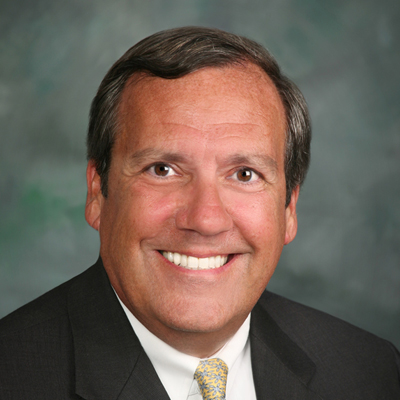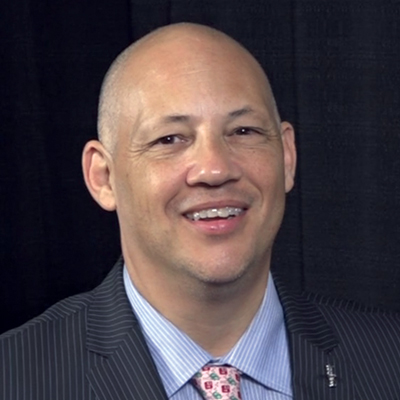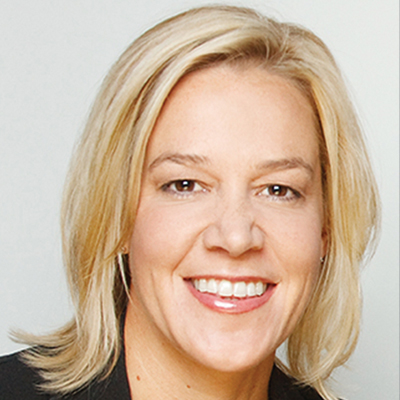The Greening of Insurance Asset Management
The Changing Relationship Between Asset Management, Values-Based Investing and Diversity and Inclusion
More-demanding expectations are affecting how insurers, regulators and investors view personnel, investments and corporate transparency.
- Meg Green and John Weber
- May 2021
-





Whether it's called green investing, ESG or stakeholder capitalism, a new approach to investing has insurer actions increasingly directed—and judged—on how well they match the company's professed values. Half-hearted moves already have a new, derogatory name: greenwashing.
Many insurers have adopted a values-based approach well ahead of any regulatory prodding, said David Altmaier, Florida's insurance commissioner and president of the National Association of Insurance Commissioners.
“There's a recognition that those are going to be larger issues, in terms of society in general, and that insurers are going to have a role in being responsive to that and making sure that they're showing some progress on those issues. I've been encouraged so far with their willingness to come to the table and have some conversations with us.”
However, insurers are not giving equal weight to each element of ESG, said Grace Vandecruze, founder and managing director, Grace Global Capital.

The House Financial Services Committee [recently] issued a questionnaire to the major asset management companies in terms of [D&I], and it would not be surprising to have the same type of inquiry be made of the insurance companies.
Tom Karol
National Association of Mutual Insurance Companies
“If you look at E with the environmental and climate risk, the industry has addressed this for decades. Climate risk is measured. It's being tracked. It's incorporated. We live with it daily because of various storms and catastrophes that are occurring,” Vandecruze said. “The industry has made significant strides with the G, and they've added oversights on governance of the insurance industry and insurance companies. But it's the S, the social, that has taken third fiddle to the E and the G.
“As a board member and as a consultant in M&A within industry, I am really focused on the S. Why? Because when you look at our society and you look at the social inequities, the racial injustices, we're still in the George Floyd aftermath and what happened with that callous killing. Even recently, the stripping away of voters' rights, which is a hallmark of democracy,” Vandecruze said. “The societal impact of not having the social factor where it should be will affect the insurance industry, our workers, and this is the opportunity for the industry to really make an impact on the S.
“It takes diversity, equity and inclusion within the company and at every rank of the organization and also the inclusive journey of having our products and services be more accessible to the underserved in particular that will make a significant difference,” Vandecruze said.
Many insurers are not only embracing ESG—environmental, social and governance—but they are building it into company culture. “We need to do much more than spout rhetoric. There needs to be actual action taking place on ESG,” said Ross Webber, managing director, Bermuda, at Apex. “I'm expecting we'll see insurers start to adjust pricing and start to implement far more punitive pricing for non-ESG risks. I think they'll bend pricing more favorably toward investments and underwriting that clearly promote the principles of ESG.”
Responsible investing is just one part of Liberty Mutual's ESG journey, Patrizio Urciuoli, executive vice president and co-head of strategy and asset allocation, said. “Being a large enterprise like Liberty is about how you build an ESG-integrated framework that is consistent across the business, but also ... the focus has to not be on only the environmental factor. There is a lot to be said about the social and governance aspects.
“One of our biggest beliefs is that insurance is a socially responsible product. As such, the social aspect plays a critical role in our integration,” Urciuoli said. “Liberty, and [the] insurance industry, we are all uniquely positioned to address some of the most pressing environmental, but also a lot of the social, issues that the world is facing today, unfortunately.”

I think we have seen a fair amount of greenwashing whereby investment managers and ILS promoters purport to be ESG ambassadors, but there really isn’t any independent verification or proof.
Ross Webber
Apex
Enter D&I
Previously diversity and inclusion issues were confined to personnel and management, but in recent years they are finding a home in asset management considerations, according to Stewart Foley, founder of Insurance AUM and editor-in-chief of Insurance AUM Journal.
“It's a really hot topic, and one of our strategic initiatives is to promote and support D&I efforts in the insurance industry and the investment industry. I think it's become a bigger and bigger topic,” Foley said. “Our colleagues at Camradata in the U.K. actually have a segment of their data that they collect from managers that's specific to D&I. I'm not so sure that D&I is going to drive the bus, but I certainly think it's a growing consideration on asset allocation decisions by institutional investors in the insurance market and more broadly.”
D&I considerations are front and center in infrastructure projects as well. Ullico Investment Advisors, part of Ullico Inc., is investing in upgrades to the John F. Kennedy International Airport in New York. Part of that investment is aimed at furthering diversity and inclusion, said Sonia Axter, managing director, infrastructure investments at UIA.
“We have 31 area investors in New York, New Jersey and Connecticut whose pension funds will be investing in that asset. That's really powerful when it comes to the decision-makers, to the mayors of those cities, to the Port Authority, to the commissioner, to the governor,” Axter said. “Thinking about that as a way to engage the community in that long-term commitment is really powerful. We're also able, as a private owner, to [institute] hiring standards, diversity requirements, diversity of capital, diversity of workforce.
“We have a target focus on training and hiring from the ZIP codes in Queens that are going to be impacted by that construction, as a huge economic opportunity for that community,” Axter said. “It's something we're really excited to get started on. It's a great example of what we can do when we apply what we consider best practices to all phases of infrastructure investing.”
No aspect of property/casualty insurance today could ignore the critical importance of diversity and inclusion to the growth and development of the insurance industry, said Tom Karol, general counsel, federal, for the National Association of Mutual Insurance Companies.
“Insurance asset management and operations are examining how to increase the diversity and inclusion of their own operations, the services and companies they use, and the impact of the investments they make,” Karol said. “The House Financial Services Committee, [recently] issued a questionnaire to the major asset management companies in terms of this particular area, and it would not be surprising to have the same type of inquiry be made of the insurance companies. As these workable metrics and standards are developed to help insurance investment asset management better understand these areas, the good policies and operations are going to follow.”

I’m a fiduciary, and I get to incorporate responsible investing policies into my investments. We have a responsible contractor policy, which covers the way labor is treated from an operations, maintenance and construction standpoint.
Sonia Axter
Ullico Investment Advisors
The Risks of 'Greenwashing'
Observers are beginning to scrutinize organizations' commitments to values-based investing and operations, and are quick to cast doubt on those who don't live up to their words, Webber said.
“Another term that I'm hearing a lot more recently is 'greenwashing,'” Webber said. “I think we have seen a fair amount of greenwashing whereby investment managers and ILS promoters purport to be ESG ambassadors, but there really isn't any independent verification or proof of what makes their portfolio, their investment or their specific action particularly ESG-friendly.”
He noted there are service providers who can help with ESG reviewing, monitoring and rating. They drill through actions, investment holdings and the risk profile of a company to rate against various peers and provide an independent ranking.
In addition, regulations are coming into force. For example, the EU Sustainable Finance Disclosure Regulation's provisions became applicable in March. That set of rules focuses on metrics for assessing ESG outcomes in investments. “While it is EU-centric, I believe it's very much a portent of what we expect to see globally in the U.K., in the United States, and, of course, here in Bermuda,” Webber said.
“I think we'll see a continued demand for higher ESG investment standards,” Webber added. “I think it will not only accelerate ILS market growth, but it could play an integral role in the long-term sustainability and attractiveness for capital market investors moving forward. I think the insurance-linked securities asset class is well aligned for tailoring with ESG principles.”
One Size Does Not Fit All
Chris Fowle, director of the Americas for Principles for Responsible Investment (PRI), believes becoming a values-driven organization is a gradual, not wrenching, process. The PRI is an investor initiative in partnership with UNEP Finance Initiative and UN Global Compact.
“It's important to understand the distinction between what PRI is promoting and helping our signatories do—which is actually better investing based on material risks and opportunity and not values-based investing per se, although there's certainly a range of approaches to integrating ESG—and being a responsible investor,” Fowle said. One end of the spectrum could have investors excluding businesses such as tobacco, alcohol and weapons, through to ESG integration, he said.
“You're doing ESG integration,” Fowle said. “You're doing it based on your material risks and opportunities, but then you also want to think about what your outcomes are, how your investment decisions are impacting the broader environment and society. It's better to think about it as a spectrum. “
Ullico's Axter believes investments can and should further an organization's purpose and values.
“Ullico was created in 1927. It was born out of a need to provide life insurance for union workers. Everything about the company has been a values-based mission.” Axter said. “It's owned by union general funds. It has a corporate mission to promote the union workplace. I'm a fiduciary, and I get to incorporate responsible investing policies into my investments. We have a responsible contractor policy, which covers the way labor is treated from an operations, maintenance and construction standpoint,” Axter said. “We look for union contractors, union content, union labor in the construction and maintenance phases of our work. We incorporate it into the transaction documents. We talk to our public counterparties about that up front.”
Fad, Trend or Permanent Change?
ESG-related discussions with insurers require little explanation, said Webber of Apex.
“ESG is the most-often-used [acronym of] three letters that I've seen since ILS. What was a fad and a trend seems to be much more than a fad and a trend now. What I find interesting with ESG is most people seem to focus solely on the E. Even then, they seem to focus solely on climate change, but there's so much more to that E than just climate change. Similarly, I think the S is subjective,” Webber said. “What may seem to be a progressive societal issue for some may seem to be abhorrent to others. I believe the recent U.S. electoral cycle is testament to that.”
Indeed, ESG integration involves more than environmental initiatives, Liberty's Urciuoli said.
“Certainly for us, Liberty Mutual, social and governance aspects play an equal role,” he said. “There is a lot that we are trying to do, both on the investment side and on the business side, to make all three factors equally important for our business.”



























